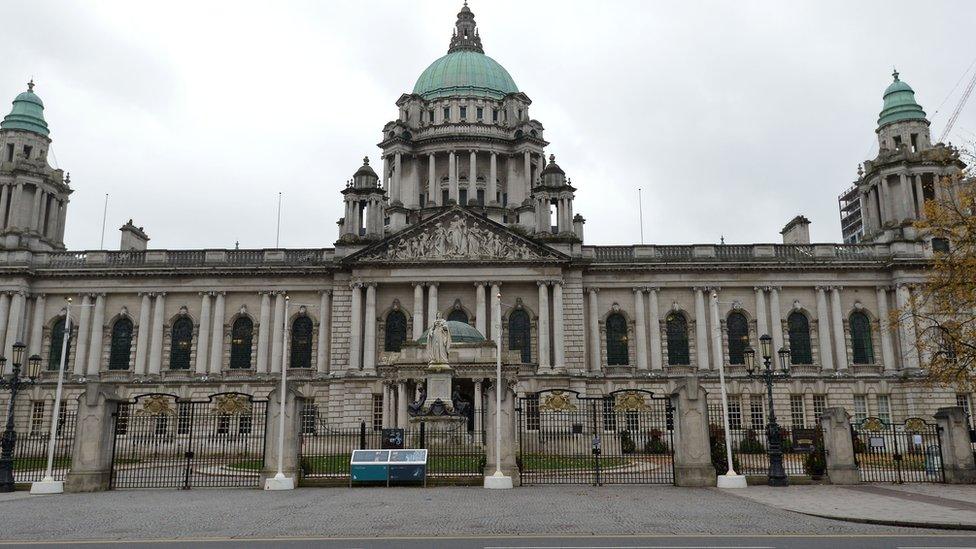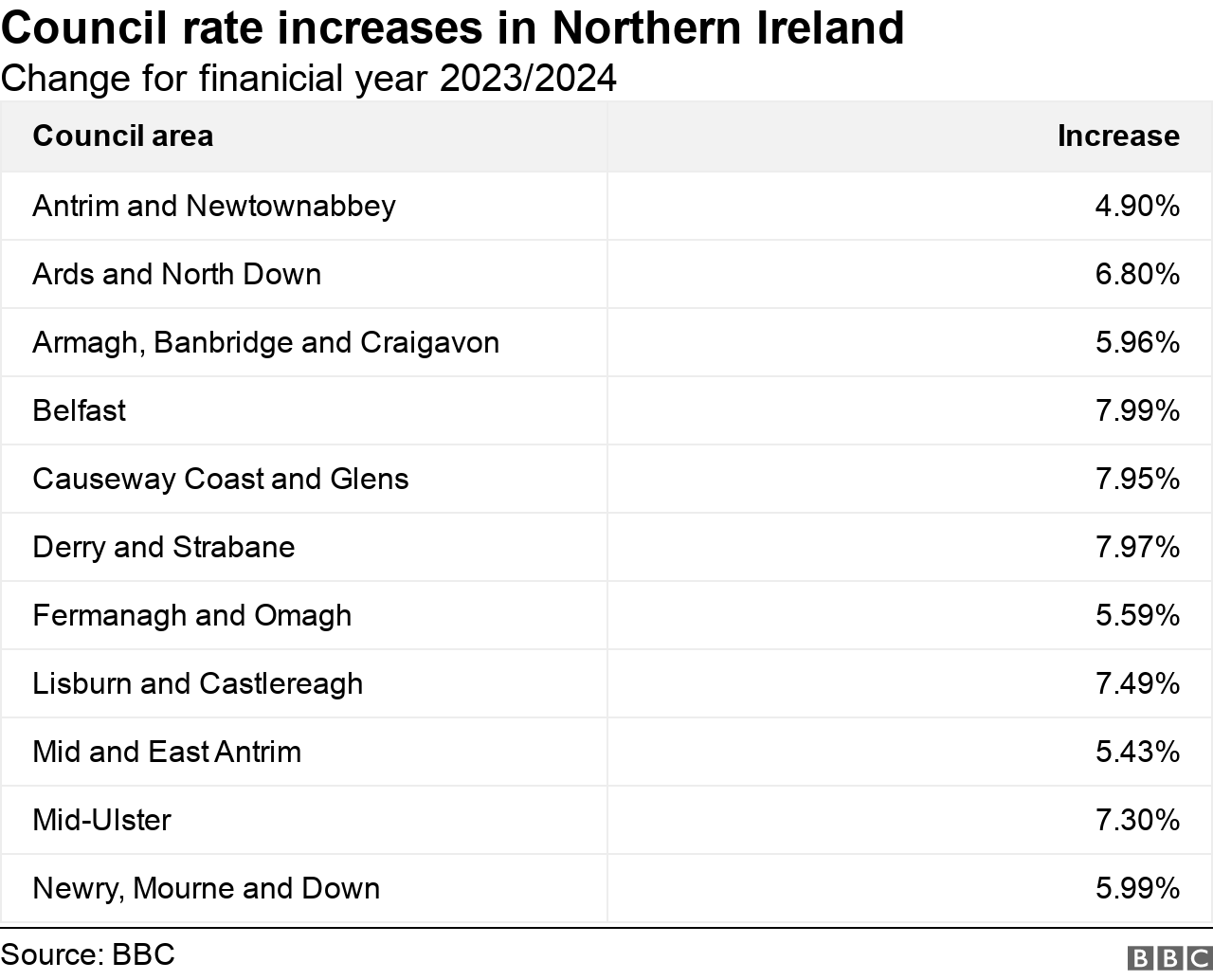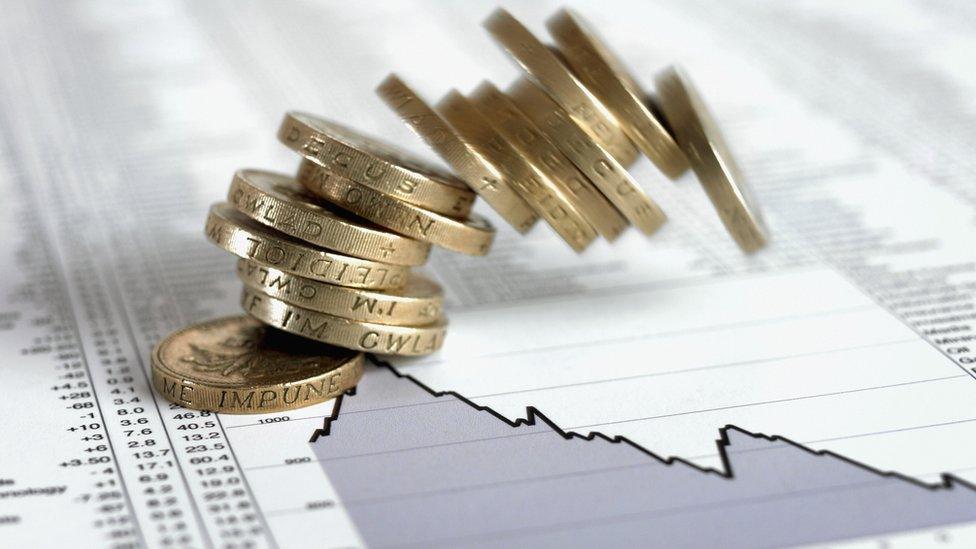Rates rises announced in three more NI councils
- Published
- comments

The rates rise was met with opposition from several councillors following a meeting on Monday
Three further councils have struck rates rises for the upcoming financial year.
Causeway Coast and Glens Borough Council have announced an increase of 7.95% for householders, while Ards and North Down agreed on a rise of 6.8% for domestic and non-domestic rates.
That's an extra £3 per month for the average househould, the council said.
Armagh City, Banbridge and Craigavon (ABC) Borough Council has struck a hike of 5.9%.
Lord Mayor Paul Greenfield said "unavoidable pressures regarding energy, fuel, contractual and salary increases has created a huge strain" on ABC council.
"The Council has undertaken a significant efficiencies review...to minimise the impact of tonight's announcement on the ratepayer, generating a total of £2.6m in budgetary savings," he added.
The money generated by rates is used to pay for public services, with bills decided against property value.
Beyond our control
Causeway Coast and Glens said it had struck an annual rate of 4.79% for the local businesses.
A meeting on Tuesday night was the third time councillors had met in the past week to try and agree the rates rise.
A proposal to defer the decision until after a special council meeting next week was rejected.
Mayor Ivor Wallace said "Unprecedented rises in utility and energy costs along with other factors including the ongoing health crisis and uncertainty around central government funding, has meant the organisation has been faced with almost £7.2m of additional financial pressures beyond our control."
He said the council has agreed to make £5.6m in savings and additional income.
"Despite the challenges faced by the organisation around energy, fuel, insurance, payroll and most importantly reducing central government funding, members are committed to making efficiency savings to mitigate the pressures on ratepayers who we recognise are greatly impacted by rising living costs, at this time."
Sinn Féin's Leanne Peacock said "Sinn Féin worked with other parties to minimise the burden on households by keeping the increase down to 79p per week for the average bill, while also protecting essential council services".
How much have rates risen elsewhere?

Belfast City Council previously raised rates by 2.99% in 2022-23
On Monday, Derry and Strabane District Council announced a 7.97% rates increase.
Mid and East Antrim District Council also agreed a 5.43% increase.
Antrim and Newtownabbey Borough Council agreed to up its rates by 4.9%.
Previously, Mid Ulster District Council agreed to increase household rates for the 2023-24 financial year by 7.3% while Newry. Mourne and Down District Council agreed a rise of 5.99%.
In Belfast, rates will rise by 7.99%.
Fermanagh and Omagh District Council voted for a 5.59% rise and Lisburn and Castlereagh City Council announced a 7.49% increase.

Domestic rates are made up of a regional rate - usually set by the Northern Ireland Assembly - and a district rate set by Northern Ireland's councils.
In the absence of a sitting assembly at Stormont, the UK government's Northern Ireland Office will set the regional rate.
BBC News NI understands that a regional rate increase will be struck ahead of bills being sent out in April.
The regional rate covers services such as hospitals and roads maintenance, while the district rate covers services such as leisure centre facilities and waste management.
- Published13 February 2023

- Published7 February 2023

- Published20 January 2023
